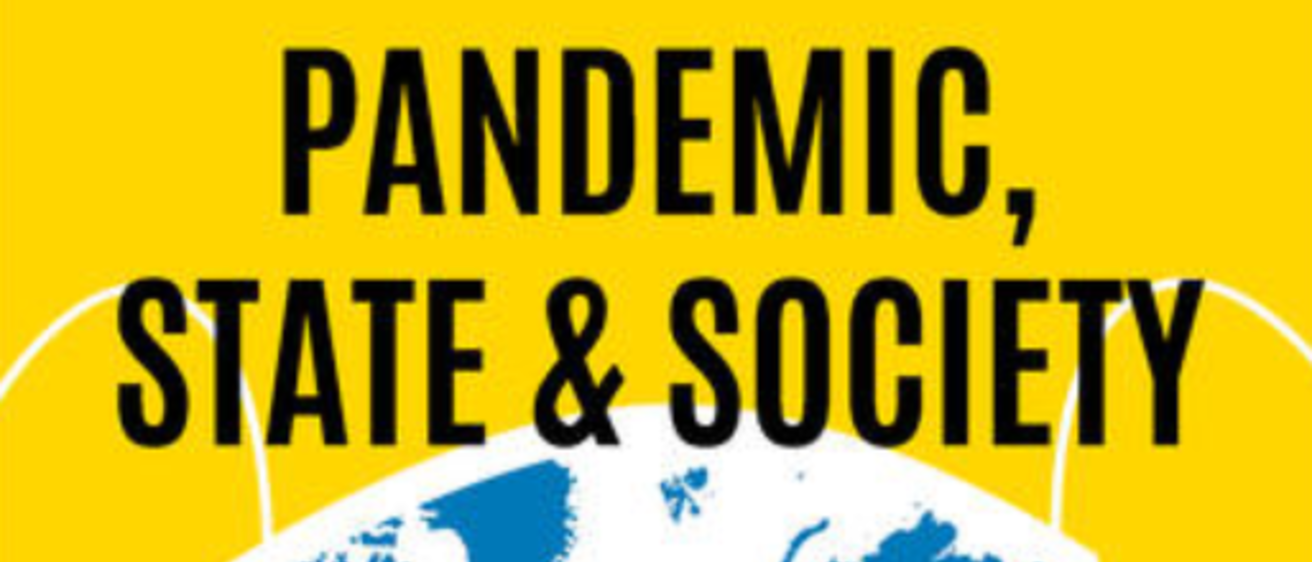Last winter, as news about a new virus that was first reported in China in December began to dominate headlines, two University of Iowa faculty members began discussing the cultural repercussions and historical echoes of what was happening. Shuang Chen, a professor of history who studies late imperial and modern China, reached out to Cynthia Chou, director of the UI’s Center for Asian and Pacific Studies, about the possibility of bringing a visiting scholar to Iowa City to discuss what was occurring on the ground in Asia, as well as the effects of what was being referred to by the United States president and others as the “China Pandemic.”
Local planning team; global experts
Chou and Chen—working together with Teresa Mangum, director of the Obermann Center, and Mariola Espinosa, director of the Global Health Network—had plans for a small event to be held at the Iowa City Public Library in April. Then campus closed. Travel all but stopped. The pandemic –officially deemed such by the World Health Organization in January—spread. And plans changed.
Chou says that as the months passed and the pandemic ebbed and flowed in different parts of the world, her and Chen’s plans morphed into something larger and more complex. “This is a global event,” says Chou of COVID-19, “and it’s vital that we remember how we are interconnected.” She says that by hearing from those who have experienced earlier waves of COVID-19, there are opportunities to learn and make better decisions.
The organizers have gathered an impressive group of interdisciplinary scholars, journalists, and other thought leaders for a two-day webinar, “Pandemic, State and Society.” Sponsored by International Programs, the Center for Asian and Pacific Studies, the Iowa Global Health Network, and the Obermann Center, the event will highlight eight experts, each of whom will give a ten-minute presentation followed by time for questions.
September 18 and September 25: Eight speakers and two foci
The first day of the webinar, September 18, “Pandemic 101—Voices from Asia,” emphasizes the on-the-ground experience of the pandemic in Asia. Rather than focusing entirely on medical stories filtered via Western journalists, organizers have sought people with firsthand understanding of the areas affected. This initial webinar features William Etienne of the University of Iowa, a medical doctor and former WHO consultant with expertise in health in conflict and response to outbreaks; Priscilla Song, a medical humanist from The University of Hong Kong, who works at the nexus of global health, science and technology studies; Joseph Walline, a medical doctor at the Chinese University of Hong Kong who is writing about the impact of COVID-19 on trauma and patient quality of life; and He Bian of Princeton University, who focuses on the history of medicine and society.
A week later, on September 25, another four voices will discuss “Invisible Communities,” with a focus on less known pockets of people who have had unique experiences with the virus. Chou says that many of these stories provide examples for those in the West, including immigrant workers living in overcrowded dormitories in Singapore who were all but forgotten when the country first locked down. As numbers seemed manageable and the country began to reopen, these communities became their own mini hotspots, not unlike meatpacking plants in the U.S.
The speakers for this second day are Sokhieng Au of the University of Iowa, who studies global circulations and inequities of medical expertise and aid; Vivienne Wee, an anthropologist and feminist activist in Singapore whose wide-ranging scope of research includes the indigenous Malays and migrant workers in Asia; Julius Bautista of Kyoto University, who was quarantined in Singapore for several months and who will focus on the educational impacts of COVID-19 in Asia; and journalist Kyonghee Lee, who writes for one of Korea’s major newspapers, Joongang Ilbo.
What can we learn from Asia's experience?
Mariola Espinosa, a medical historian who directs the Iowa Global Health Network, says that although it is easy for us to be focused on the very localized effects of the pandemic—checking our county’s positivity rate and the status of openings and closings in the school district, we must remember that the pandemic is a global event. She says that in shifting the lens back to Asia, there is an opening for us “to learn how different states there have been dealing with the epidemic—to learn about different medical understandings, different state institutions, different political inclinations (democracy, authoritarianism, etc.)—and how what we face here is not unique to us all the time—including states ignoring entire communities that end up bearing the burdens of disease—and also how we are all connected and part of larger world where our actions can affect others.”
Both webinar sessions are from 8:00 to 9:30 PM (CST) and are free but require registration. Learn more about Pandemic, State and Society and register for the webinars here.
In addition to the four main co-sponsors, this event is supported by a collaborative group of university and community partners:
UI Collaborators
Global Health Studies Program
Department of Anthropology
Department of History
Department of Religious Studies
College of Nursing
Carver College of Medicine Global Health Programs
College of Pharmacy
College of Dentistry International Affairs and Programs Committee
Department of Asian and Slavic Languages and Literatures
Pan Asian Council
King Sejong Institute
Korean Studies Research Network
Office for the Vice President for Research
College of Public Health
Community Collaborators
Iowa City Foreign Relations Council
Physicians for Social Responsibility
